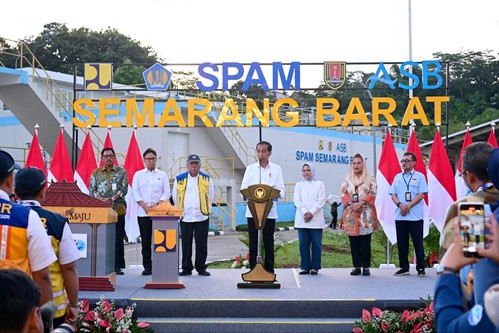Public-Private Partnership (PPP) is a form of government effort to collaborate with the private sector. This partnership is typically in long-term agreements lasting more than 20 years. Through these agreements, both parties can advance their expertise and optimize their assets in the improvements, both parties can advance their expertise and optimize their assets in the improvement of public services.
PPP in Indonesia commenced with the issuance of Presidential Regulation No. 67 of 2005 concerning Government Cooperation with Business Entities in providing various infrastructures, including transportation, roads, telecommunications, and water supply.
The provision of clean water projects, covering the development of raw water intake facilities, transmission and distribution networks, as well as clean water installations in Indonesia, requires significant investments. The implementation of PPP in water infrastructure development offers a solution to the government budget constraints.
Benefits of Public-Private Partnership
- Infrastructure Access Improvement
- Fiscal Burden Reduction
- Technology and Knowledge Transfer
- Efficiency and Innovation
Private sector willingness to partner with the government accelerates financing, enabling prompt project realization. Adequate infrastructure availability can enhance health quality and stimulate community productivity.
Implementing PPP can help reduce the government's fiscal burden in financing expensive infrastructure projects. Financing from the private sector will alleviate pressure on the public budget, allowing the government to allocate resources to other sectors in need.
Private companies generally have access to the latest technology applicable in infrastructure projects and water management. Through PPP, they can transfer technology, build local capacity, and enhance the qualifications of human resources.
The private sector is known for efficiency and results orientation. In a partnership scheme between the government and the private sector, both parties can share risks and responsibilities in implementing development projects.
Public-Private Partnership in the Water Sector

The Ministry of Public Works and Public Housing of the Republic of Indonesia has implemented public-private partnerships in the development of the drinking water supply system (SPAM). This project is built to fulfill the people's right to clean drinking water.
By the end of 2021, the government recorded that SPAM had surpassed the target of meeting the drinking water needs of 24.5 million people. In the current year, Indonesia aims to provide access to clean drinking water for 100 million people.
In early 2024, President Joko Widodo inaugurated the SPAM Semarang Barat project in Semarang, Central Java. This IDR 870 billion worth project serves as an example of the implementation of the Government-Business Entity Cooperation (KPBU) scheme, involving the central government, local government, and the private sector.
The capacity of SPAM West Semarang reaches 1,000 liters of clean water per second to meet the needs of Ngaliyan District, West Semarang, and Tugu. Approximately 350 thousand people will have their clean water needs met by this SPAM.
President Jokowi envisioned the clean water management system in Semarang as a pilot project that can be applied in other areas. This project, part of the PAMSIMAS program, will also be showcased at the 10th World Water Forum in Bali on May 18-25, 2024.